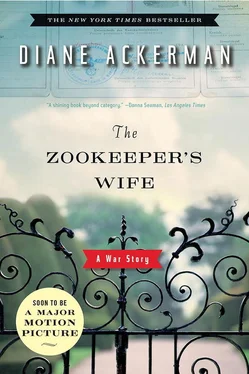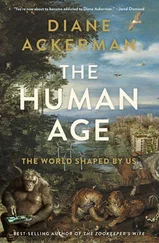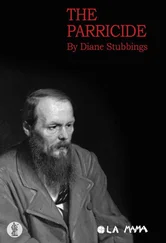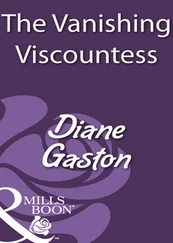At first, while the Ghetto remained porous, the Żabińskis’ Jewish friends believed it a temporary lepers’ colony, or that Hitler’s regime would quickly collapse and justice prevail, or that they could weather out the maelstrom, or that the “final solution” meant ejecting Jews from Germany and Poland—anything but annihilation.
Choosing an unknown future over a violent present, most Jews moved as ordered, though some, contrary and beyond herding, opted for a chancy life hiding on the Aryan side of the city. According to Antonina, a bleak topic of conversation among her friends of mixed descent, or married couples one of whom was Jewish, were the racist Nuremberg laws of September 15, 1935, stipulating how much Jewish blood you could have without being tainted. The famous explorer of the Silk Road and Nazi apologist Sven Hedin, who stood beside Hitler on the podium at the 1936 Olympics, was exempt, though his great-grandfather had been a rabbi, something Hitler’s inner circle would surely have known.
Although few people foresaw the racist laws as a matter of life and death, some quickly converted to Christianity and others bought false documents. Afraid the Germans might discover Wanda’s part-Jewish heritage, their friends Adam and Wanda Englert arranged a fake divorce followed by a non-event known as “Wanda’s Disappearance.” But before Wanda vanished, she decided to throw a farewell party for family and close friends at the old armory downtown, and she chose summer solstice for the event.
On this holy eve, the armory was undoubtedly decorated with sprigs of mugwort, a tall plant in the wormwood family with purplish stems, gray-green leaves, and small yellow flowers. The ancient herb was used to break spells and repel male and female witches, especially on June 23, Midsummer’s Eve, a day associated with Saint John (according to legend, when Saint John was beheaded, his head tumbled into a patch of mugwort plants). Superstitious Polish farmers hung branches of the herb under barn eaves to keep witches from milking the cows dry during the night, Warsawian girls wore mugwort garlands in their hair, and housewives tied sprigs of mugwort to doorways and windowsills to dash evil. During occupation by perceived devils, a party held on Midsummer’s Eve couldn’t have been a coincidence.
On June 22, Jan and Antonina set out for the party, planning to cross Kierbedź Bridge, a pleasant stroll or trolley ride in good weather. In old photographs, the bridge’s enclosed metal trusses look like a long row of staples, and its basket-weave stencils the road with small squares of sunlight. Such bridges flute tunelessly when wind pipes through at changing speeds, and vibrate with felt music, a bone-buzzing bass also made by elephants, who speak and hear in subsonic, which zookeepers can feel if they stand where elephants talk.
Jan and Antonina usually took a shortcut through Praski Park, whose urban oasis once spread to seventy-four acres over old Napoleonic fortifications. In 1927, the new zoo absorbed about half of the park, leaving in place as many old trees as possible, so that people arriving by trolley first passed beneath the arbors to find the zoo unfolding with the same species of honey locusts, maple-leaved sycamores, maiden-hairs, and sweet chestnut trees as prologue and story. But on this afternoon, discovering they were out of cigarettes, Jan and Antonina chose a longer route, along Łukasiński Street, which skirted the park, and popped into a little shop full of the sweet smell of strong Polish tobacco. Just as they were leaving and lighting up, a great booming shock wave hurled them against a fence and rocks rained through a cloud of sandy soil. At once the air curdled and turned black, and a second later they heard an airplane engine and saw a thin pink line streaking across the sky. Their lips moved without sound as they staggered to their feet, deafened and confused by the blast. Then, when wolf-howl sirens blew an all-clear, they decided the plane wasn’t part of a wave but a lone bomber trying to destroy Kierbedź Bridge, which remained intact, as did Praski Park. But a spume of black smoke gusted and rose and gusted again from a blasted trolley.
“If we’d taken the shortcut, we might have been on it,” Jan said angrily.
A second fright gripped Antonina as she noticed the time. “But that is the trolley Ryś sometimes takes home from school!”
Sprinting down the street, they ran to the sparking, twitching trolley, tossed from its tracks and lying in front of the Catholic church like a steaming mammoth, its metal mangled and wire umbilicals lax, with fifty or so limp people scattered inside and out. “With tears rolling from my eyes, I looked into the faces of the dead, looking for Ryśio’s face,” Antonina recalled. Searching through smoke and hot debris for their son, and not finding him, they ran to the school, but the children had already left. Next they ran back past the trolley and swelling crowd, through Praski Park, rushing between the cages to the villa, racing up the back steps, bursting into the kitchen, and hunting the whole house, shouting Ryś’s name.
“He’s not here,” Jan said at last, sagging into a chair. After a while, they finally heard him on the back steps.
“Sit down,” Jan said sharply but quietly as he steered Ryś to a chair. “Where did you go, you bad boy? Did you forget that returning home from school at once is your chief responsibility?”
Ryś explained that school had just let out when a bomb hit, and then a worried stranger had herded the children inside his house until the all-clear siren blew.
Needless to say, Antonina and Jan missed Wanda’s party, but not her company, because soon afterward, as planned, she “disappeared” to the zoo, in the guise of Ryś’s non-Jewish tutor.
JAN AND ANTONINA FOUND NAZI RACISM INEXPLICABLE AND devilish, a disgust to the soul, and although they were already assisting friends inside the Ghetto, they pledged, despite the hazards, to help more Jews, who had figured importantly in Jan’s childhood memories and loyalties.
“I had a moral indebtedness to the Jews,” Jan once told a reporter. “My father was a staunch atheist, and because of that, in 1905, he enrolled me in the Kretshmort School, which at that time was the only school in Warsaw where the study of Christian religion wasn’t required, even though my mother was very opposed to it because she was a devout Catholic. Eighty percent of the students were Jews, and there I developed friendships with people who went on to distinguish themselves in science and art…. After graduating high school, I began teaching in the Roziker School,” also predominantly Jewish. As a result, he made intimate friendships among the Jewish intelligentsia, and many school chums lived behind Ghetto walls. Although Jan didn’t say much publicly about his father, he told a journalist that he’d chosen zoology “to spite my father, who didn’t like or appreciate animals, and didn’t allow them in the house—other than moths and flies, who entered without his permission!”
They had more in common when it came to the loyalty shown Jewish friends:
My father and I both grew up in a Jewish neighborhood. He was a lawyer, and even though he married into a very wealthy family—the daughter of a landowner—he rose to bourgeois status on his own. It was just by chance that we happened to grow up in this poor Jewish neighborhood in Warsaw. From childhood my father used to play with Jewish children in the streets, treating Jews as equals. And I was influenced by him.
The zoo was by no means ideal for hiding refugees. The villa stood close to Ratuszowa Street, right out in the open like a lighthouse, surrounded only by cages and habitats. A clutch of houses for employees and administrative buildings lay mid-zoo, three-tenths of a mile away; acres of open land encircled the villa, most of it a park with small garden plots; railroad tracks ran south, along the Vistula River, just beyond the zoo fence; and the north side held a military zone of small wooden buildings heavily guarded by German soldiers. After Warsaw’s surrender, on the lions’ island right in the middle of the zoo, Germans had built a storehouse for weapons confiscated from the Polish army. Other German soldiers often visited the zoo as well, for a dose of greenery and quiet, and no one could predict how many might appear, or when, since they didn’t seem to favor one time of day over another. But they arrived in an off-duty frame of mind, not on patrol, and, in any case, Praski Park’s less-bombed setting offered more appealing walks.
Читать дальше












